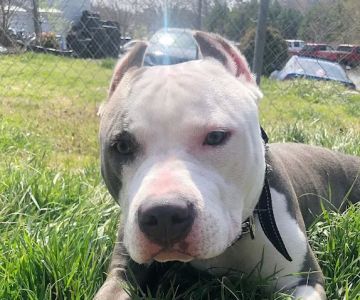Why is Being a Veterinarian Important?
- The Impact Veterinarians Have on Society
- The Role Veterinarians Play in Animal Care
- Challenges Veterinarians Face in Their Profession
- Personal Fulfillment in the Veterinary Profession
- How Veterinarians Contribute to Public Health
- How to Become a Veterinarian
The Impact Veterinarians Have on Society
Being a veterinarian is more than just a career—it's a vocation that carries significant weight in society. Veterinarians not only care for animals, but they also contribute directly to the health and wellbeing of communities. With the increasing number of pets and livestock in the world, veterinarians play an integral role in managing diseases that can affect both animals and humans, protecting public health. From domestic pets to endangered species, veterinarians are there to ensure that animals are treated humanely, that they receive the best care, and that any diseases are controlled. Their expertise and dedication make them vital members of society, even if their work is not always in the spotlight.
The Role Veterinarians Play in Animal Care
At the core of veterinary practice is the deep commitment to animal health. Veterinarians provide medical care to a wide range of animals, ensuring their physical well-being and emotional comfort. Whether it's a routine checkup, emergency surgery, or a complex treatment plan, veterinarians are there to provide the expertise needed. Their knowledge in anatomy, diseases, and treatments makes them indispensable to pet owners, farmers, and wildlife conservationists alike. Veterinarians are not just medical professionals—they are often the first line of defense in ensuring that animals remain healthy, happy, and safe.
Challenges Veterinarians Face in Their Profession
While the rewards of being a veterinarian are numerous, the profession is not without its challenges. Veterinarians often face long hours, emotional stress, and difficult decisions that can affect both them and their clients. They must navigate complex cases, sometimes dealing with animals that are in severe pain or distress. Moreover, they must provide care with compassion while balancing the financial constraints of pet owners or animal facilities. The emotional toll of euthanizing an animal, even when necessary, can be mentally and physically draining. Additionally, the profession requires continual learning as medical advancements evolve rapidly. Despite these challenges, the resilience and passion of veterinarians keep them dedicated to their work.
Personal Fulfillment in the Veterinary Profession
For many veterinarians, the rewards of the job far outweigh the challenges. The personal fulfillment derived from helping animals and knowing that their work directly impacts the quality of life for both animals and humans is unmatched. Many veterinarians also find joy in building strong relationships with pet owners, who often view them as trusted advisors in the care of their animals. The satisfaction of saving an animal's life or providing comfort to an injured pet can be incredibly rewarding. Additionally, veterinarians often find a sense of purpose in their work, especially when they are involved in fields like wildlife conservation or public health, knowing that they are making a difference on a larger scale.
How Veterinarians Contribute to Public Health
Veterinarians play an important role in public health, as many diseases that affect animals can be transmitted to humans. Zoonotic diseases, such as rabies, tuberculosis, and certain strains of flu, can cross over from animals to humans, creating serious public health concerns. Veterinarians work tirelessly to monitor and control these diseases, helping to reduce outbreaks and ensuring the safety of communities. In addition, veterinarians are involved in food safety and inspection, ensuring that livestock are healthy and safe for human consumption. By managing the health of animals, veterinarians prevent the spread of diseases and contribute to the overall health of society.
How to Become a Veterinarian
Becoming a veterinarian requires dedication, hard work, and a passion for animal care. Aspiring veterinarians typically need to complete a four-year undergraduate degree, followed by attending a veterinary school, which generally lasts another four years. The veterinary school provides intensive training in medical science, animal care, surgery, and diagnostic techniques. After earning a Doctor of Veterinary Medicine (DVM) degree, graduates must pass a licensing exam before they can practice legally. Continuing education is also a key part of the profession, as veterinarians must stay up-to-date with the latest advancements in animal medicine. While the path is challenging, it offers a rewarding career for those committed to animal welfare.
<>











